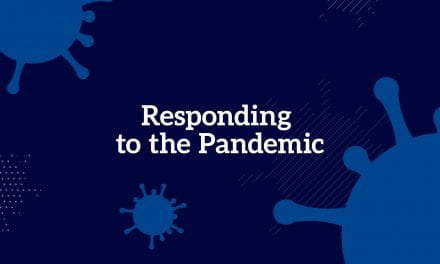
Preventing Child Abuse
Parent training on preventing child sexual abuse shown to be effective
This article was written by Maggie Ward and originally published by Penn State News on November 10, 2020.
Researchers at Penn State’s Child Maltreatment Solutions Network are using a novel approach to further prevent child sexual abuse.
They tested whether a child sexual abuse prevention program, Smart Parents–Safe and Healthy Kids (SPSHK), could be implemented as an additional module to already existing, evidence-based parent training, Parents as Teachers, which is a widely used parent-education program implemented by several states to bolster the parenting skills of at-risk parents. Results demonstrated the effectiveness of SPSHK as an innovative strategy to impact parents’ awareness and behavioral skills for protecting children from sexual abuse.
“By adding the child sexual abuse prevention program to these other programs, we use existing infrastructure and solve challenges like engagement and attendance at programs.”
Kate Guastaferro, assistant research professor in human development and family studies and faculty affiliate of the Child Maltreatment Solutions Network, spearheaded the publication, Parent-Focused Sexual Abuse Prevention: Results From a Cluster Randomized Trial, featuring Child Maltreatment Solutions Network faculty and Social Science Research Institute cofunds Sarah Font, Christian Connell, Sheridan Miyamoto, and Jennie Noll.
Guastaferro and her team saw an opportunity to integrate content focused on child sexual abuse prevention with existing programs to efficiently address risk for sexual abuse, a subtype of child maltreatment that is estimated to affect more than one in four women and one in five men in the US with over 63,000 new cases each year in children under the age of 18.
“There are a number of existing parent-education programs that have demonstrated effectiveness in preventing physical abuse or neglect, but none have demonstrated an effect on child sexual abuse,” Guastaferro said. “We developed the Smart Parents – Safe and Healthy Kids curriculum to fill this gap.”
The curriculum adopts a strengths-based perspective and teaches parents skills designed to create and foster a protective environment. These skills include identifying typical healthy sexual development, utilizing natural opportunities to talk about sex or sexual development with their child in an age appropriate manner and how to monitor their child’s safety inside and outside the home.
Guastaferro said that the parents who received SPSHK were able to efficiently and effectively acquire the information and maintain it over a 12-month follow-up period. The team also demonstrated how to address various barriers that child sexual abuse prevention programs often face, including enrollment, engagement, and retention.
Child Maltreatment Solutions Network
Learn more about CMSN’s efforts to protect children including how you can get involved.
“By adding the child sexual abuse prevention program to these other programs, we use an already existing infrastructure and solve some of the challenges of preventative education, like sustainability, engagement and attendance at programs,” she said.
A major concern of the integrative approach was if the added module would alter the efficacy of the existing program; however, the research indicated that the child sexual abuse prevention addition did not alter the effectiveness of the original content of the parenting training.
“Our additive approach is novel,” Guastaferro said. “By capitalizing on an existing infrastructure and a well-defined population with demonstrated need, I think that ultimately we will reach more parents.”
The Smart Parents – Safe and Healthy Kids curriculum is included in a larger prevention effort, The Safe and Healthy Communities Initiative, and involves researchers from the Solutions Network. An ongoing implementation and evaluation project in partnership with the Pennsylvania Commission on Crime and Delinquency (PCCD), the Safe and Healthy Communities Initiative implements three evidence-based programs targeting three distinct populations: adults from the general community, second grade children, and at-risk parents. The Smart Parents – Safe and Healthy Kids program is being delivered to families enrolled in parent education programs across the five counties involved with the Initiative.
The research on Smart Parents – Safe and Healthy Kids was supported by the Social Science Research Institute and the Child Maltreatment Solutions Network, whose mission is to eradicate child abuse and to change the life trajectories to survivors through cutting edge research.
Jennie Noll, professor of human development and family studies and director of the Child Maltreatment Solutions Network, expressed enthusiasm for the scale up and sustainability of this novel approach to sexual abuse prevention. Noll was also a senior author of the study.
“By leveraging the statewide Children and Youth Services infrastructure already in place in Pennsylvania to support and encourage families, the sexual abuse prevention curriculum taught in Smart Parents – Safe and Heathy Kids is an efficient, affordable, and sustainable model that we can now scale up for much larger implementation through recent legislation which calls for evidence-based prevention to be funded at the state level,” Noll said.
Guastaferro and her team are currently working to make the program even more adaptable in hopes of reaching more parents with prevention education.
“The next steps for our team are seemingly endless and exciting,” Guastaferro said. “We are actively pursuing virtual delivery of the curriculum and exploring adaptations of curriculum to function as a standalone program.”
More News from Around the College
Supporting underrepresented entrepreneurs to uplift individuals and the economy
Women and entrepreneurs of color have lower access to capital than other entrepreneurs. Penn State researchers are collaborating with colleagues, nonprofits, entrepreneurs, and corporations to build a stronger economy and more equitable future.
Understanding abuse to aid recovery and protect children
In the last 10 years, Penn State has taken unprecedented steps to address child abuse and neglect through ground-breaking, interdisciplinary research. Penn State’s training, outreach, and research are making a difference across the nation.
Minor prepares students for entrepreneurial success
The Hospitality Management concentration of the Entrepreneurship and Innovation minor offers business and leadership training to students interested in entrepreneurial pursuits after graduation. The minor provides opportunities for students to connect with alumni working in the industry.






